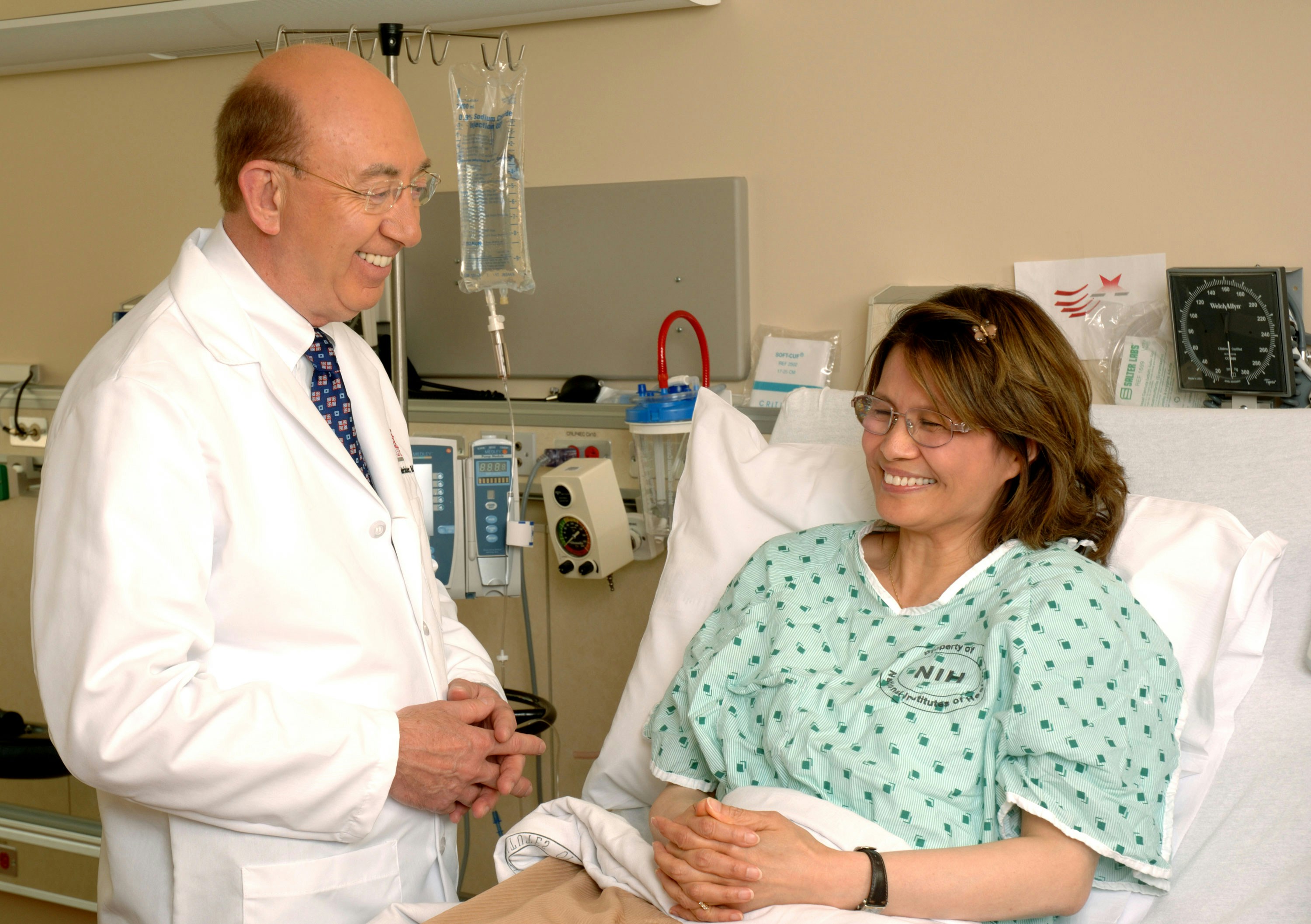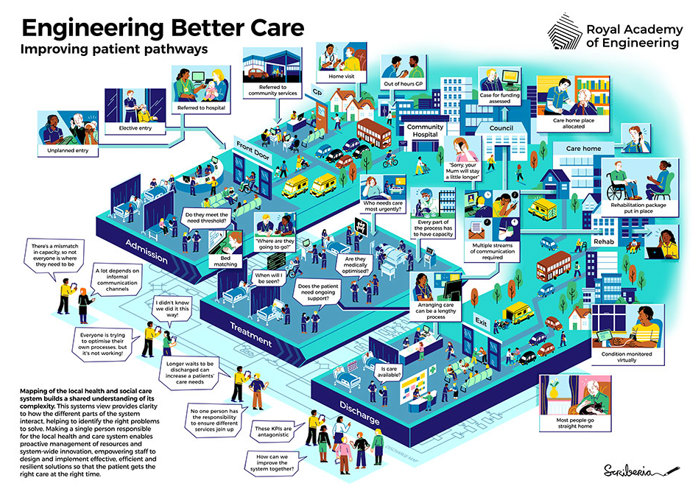In Spring 2022, the Department of Health and Social Care asked the Academy to use its expertise in systems thinking to examine challenges related to delayed discharges of patients from hospital into community care.
Improving patient pathways
Through interviews with staff, we explored the patient journey. We looked at how patients are admitted, treated, move through the hospital, and are discharged, to either go home or into local community health and adult social care services. We focused on the key decision points and handovers between different health services to identify the bottlenecks that can lead to delays in a patient’s journey.

Key findings:
- Limited oversight: No single person has the responsibility to understand how different services join up across the regional system or to ensure that the different services are working effectively together. Large mismatches between accessibility of acute and community care results in bottlenecks.
- Antagonistic processes: Local efficiency drives can put different services in competition and conflict, often over limited resources such as community beds. Local goals can sometimes be antagonistic to the needs of patients.
- Risk aversion and delay: Risk-averse behaviour can be seen as necessary by local service leaders to prioritise or guard limited local resources. However, this can result in delays, for example, where planning for social care begins only when a patient is medically fit.
The complexity and fragmentation of our health and care system makes improvement, innovation, and effective change challenging. Lessons can be learned from the systems approaches used by engineers when designing and managing complex processes. Systems thinking can bring clarity to complexity, and a shared understanding can empower staff to design and implement efficient and resilient solutions so that the patient gets the right care at the right time.
Engineering better care project
Engineering better care was a joint project between the Royal Academy of Engineering, the Academy of Medical Sciences, and the Royal College of Physicians. This work explores how a systems engineering approach could be applied to health and social care. It was designed to support the development of healthcare systems that better meet the needs of patients, carers and NHS staff. Engineering Better Care proposes a framework to support healthcare design and improvement. The framework brings together four key and complimentary perspectives:
- People: understanding of interactions among people, at the personal, group and organisational levels
- Systems: addressing complex and uncertain real-world problems, involving highly interconnected technical and social elements.
- Design: focusing on improvement by identifying the right problem to solve, creating a range of possible solutions and refining these to deliver good outcomes.
- Risk: identifying what could possibly go wrong, managing risk and the necessary change.
Engineering better care report 2017
A systems approach to health and care design and continuous improvement
Interactive report
View an interactive version of the Engineering better care report.
Toolkit for Engineering Better Care
A toolkit and supporting training offers have been developed for healthcare improvers and policy makers. The approach is being tested in NHS Trusts across England. Explore the toolkit and training opportunities via the University of Cambridge website below.
Contact us
For more information about our work in healthcare improvement email: [email protected]

